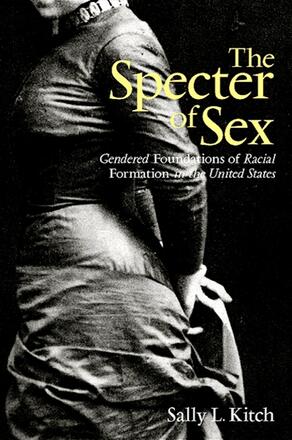
The Specter of Sex
Gendered Foundations of Racial Formation in the United States
Alternative formats available from:
Genealogy of the formation of race and gender hierarchies in the U.S.
Description
Top Three Finalist for the 2010 John Hope Franklin Publication Prize presented by the American Studies Association
Theories of intersectionality have fundamentally transformed how feminists and critical race scholars understand the relationship between race and gender, but are often limited in their focus on contemporary experiences of interlocking oppressions. In The Specter of Sex, Sally L. Kitch explores the "backstory" of intersectionality theory—the historical formation of the racial and gendered hierarchies that continue to structure U.S. culture today. Kitch uses a genealogical approach to explore how a world already divided by gender ideology became one simultaneously obsessed with judgmental ideas about race, starting in Europe and the English colonies in the late seventeenth century. Through an examination of religious, political, and scientific narratives, public policies and testimonies, laws, court cases, and newspaper accounts, The Specter of Sex provides a rare comparative study of the racial formation of five groups—American Indians, African Americans, Latinos, Asian Americans, and European whites—and reveals gendered patterns that have served white racial dominance and repeated themselves with variations over a two-hundred-year period.
Sally L. Kitch is Dean's Distinguished Professor of Women and Gender Studies at Arizona State University. Her books include Higher Ground: From Utopianism to Realism in American Feminist Thought and Theory.
Reviews
"Grounding her analysis on wide-ranging secondary works, [Kitch] presents a concise vision of U.S. gender and racial interactions, particularly valuable for feminist studies courses." — Journal of American History
"…[a] compelling and analytically rich book … this is a book that needed to be written, and is useful for any historical appreciation of racial and gendered ideology and inequalities in the US and intersectionality literature more broadly … Highly recommended." — CHOICE
"This gracefully written synthesis of existing historical scholarship advances a position that both asserts distinction between 'race' and 'gender' as categories and privileges the gendered process of racial formation as key to understanding power and hierarchy in the United States. It is perfect for the classroom and will serve as a guide for theorists who need grounding in history. Compelling and provocative, this book will become a classic." — Eileen Boris, coeditor of The Practice of U.S. Women's History: Narratives, Intersections, and Dialogues